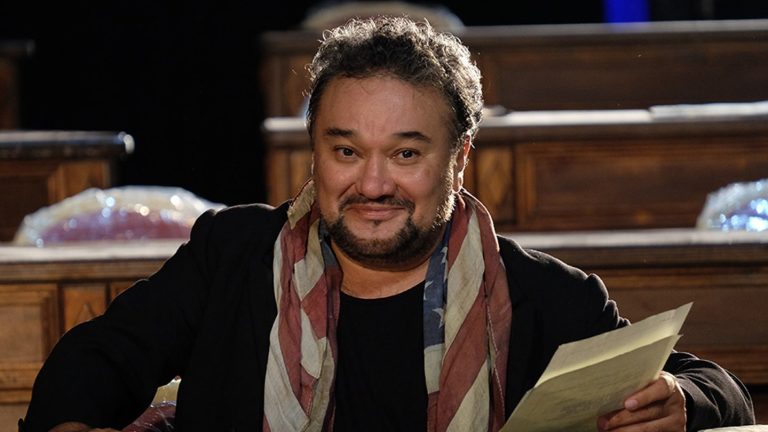The internationally renowned Mexican-born operatic tenor Ramón Vargas has a special relationship with Budapest. Through the auspices of the local organization Coopera, Vargas began vocal masterclasses during the 2022 Debrecen Festival, and continued this year in February in Budapest. He and Coopera’s founder Dániel Vadász, have a mission to bring back an older tradition of singing, called ‘bel canto.’
Vargas and Vadász believe that the ‘bel canto’ (Italian for “beautiful singing”) method, inherited from early 19th century European vocal pedagogues and their descendants, is a valuable method for all singers to know.
Vargas’ long career exemplifies the results of following these time-tested principles: that they help build and guarantee a healthy vocal longevity in the opera and concert world. His international debut took place in 1992 as Edgardo in Lucia di Lammermoor at the Metropolitan Opera House in New York, replacing Luciano Pavarotti. With more than 35 years of career, he has performed more than 50 roles in opera houses, concert halls, and theaters around the world like the Teatro alla Scala of Milan, the Staatsoper of Vienna, the Metropolitan Opera House of New York, the Opera of Paris, the Gran Teatre del Liceu, the Teatro Colón of Buenos Aires and the Teatro Real. In 2000, British Opera Now declared him Artist of the Year. This year, he presented a solo concert in Budapest on January 29th in the Hungarian State Opera House.
‘It’s not about loud, it’s about good singing.’
Coopera and Vargas offered a week-long masterclass in February with 6-8 singers per day at the historic Benczúr Ház mansion. One of his pearls of wisdom uttered to one student tenor was: ‘the sound is the result, not the process.’ This referred to this singer’s initial physical approach to starting and sustaining sound without tension and pressure in order to achieve a pleasing and effortless tone quality. His exercises were repeated slow slides (glissando) on a single vowel in short melodic patterns.
When I interviewed Vargas, he expressed his concern about the kind of training for young singers who are too often on the fast track into the world’s great opera houses. ‘Too many voices are suffering, and many are destroyed,’ he explained. ‘That means their prime [the best years of a singer’s life] is spoiled.’ Vargas recalled a moment at La Scala with Maestro Riccardo Muti, who told him: ‘Remember, Ramón, the public is deaf! They only hear the big voices and the high notes. It’s a battle we can’t win.’
Vargas feels that ‘the big roles should only be sung by experts,’ he declares. ‘I noticed this 25 years ago, now it’s worse – [the music business] only looks for phenoms. We should bring back this old concept of singing – it’s not about loud, it’s about good singing.’
Vargas’ Budapest masterclasses
With the Budapest course in February, Coopera employs the bel canto technique for the organization’s Hungarian singing colleagues. Such local singers as Zsófia Kálnay, Péter Balczó, Gergely Boncsér or Antal Cseh are just a few of the Hungarian participants, and opera singers from Vienna and other cities also participate.
Many participants are already working professionals and others are still in training. Vargas’ gentle and supportive manner is reassuring; also, his many personal demonstrations, despite suffering with a cold on that day, of an easily-produced vocal line — that enables as many haunting pianissimos as glorious fortes — is the bel canto guarantee.
Vargas’ final comment to mezzo-soprano Zsófia Kálnay, after she went through a challenging session to be able to sing successful high notes, and achieved stunning results: “When you sing like that, you are giving us your treasure!” Both Vargas’ and Coopera’s intent is to keep these precious vocal treasures flowing.











